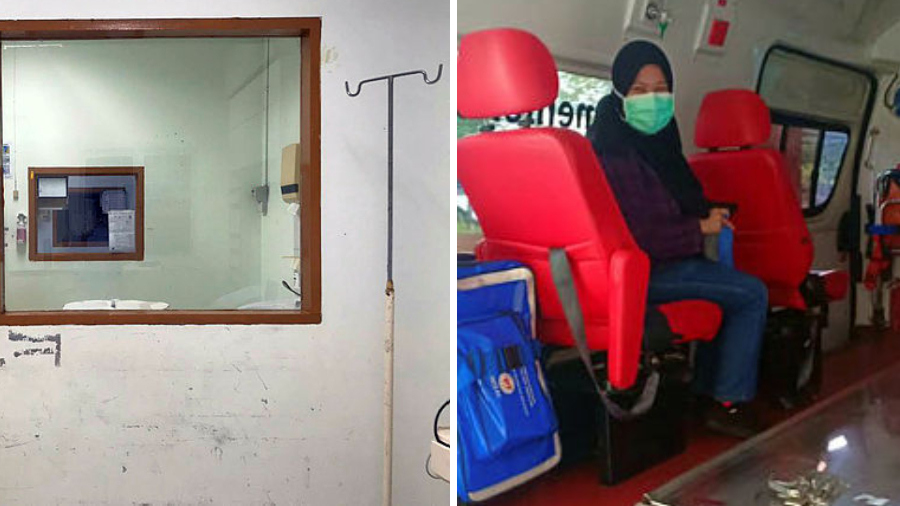PETALING JAYA: Syadila Amri, 29, spent four days in an isolation ward at the Tuanku Jaafar Hospital in Seremban after she was suspected of having contracted the novel coronavirus.
The photographer had returned from a holiday in Guangzhou from Jan 7 to 11.
She started coughing after her return and developed a fever.
“On Jan 26, I started to cough. I had a sore throat, flu and I came down with a fever,” Syadila told theSun.
“I went to see a specialist the next day. I was found to have dengue fever, so the doctor referred me to a hospital in Seremban for a more thorough check-up.”
“At this point, I didn’t think that I would be a novel coronavirus ‘patient under investigation’. I had only been in China for five days,” she said.
“I was immediately transferred from the Jempol Hospital to the Tuanku Jaafar Hospital and placed under quarantine.”
The transfer was a frightening experience for Syadila as the ambulance had several medical officers and workers wearing Hazmat suits accompanying her.
“The doctor kept checking my temperature throughout the journey. I got more anxious and nervous during the speedy ride to the hospital in Seremban,” she said.
“I was in isolation from Jan 28 to 31. The only source of entertainment in the room was a television that couldn’t be switched on. The internet reception was very poor. There was nothing that I could do except be lost in my own thoughts and emotions.
“It was terrifying and all that I could think of was my family. They could only talk to me through an intercom. It was sleepless nights the whole time I was there,“ she added.
Syadila said the ordeal of being locked away in the isolation ward, which she felt was like a mental asylum, was now etched in her mind.
“It felt like a terrible mind game that I had to play. The room had a window, but it couldn’t be opened.
Although there was air-conditioning, there was no remote for me to adjust the temperature. I felt hot and there wasn’t a fan.
“Nobody could see me except the medical workers in Hazmat suits, who came to take my temperature and deliver my meals.”
Her only communication with the outside world was the intercom and her mobile phone.
“All the questions that the staff there asked on my condition were done through the intercom. I even received phone calls from Health Ministry personnel asking about my China trip,” she said.
On top of being confined, all the items she had with her were confiscated, except her mobile phone. The items were returned to her after she was released.
Syadila said there was nothing she could do but eat and sleep, other than playing with her phone.
“After some time, I just laid down on the hospital bed and stared at the ceiling while waiting for the test results.”
While Syadila was in the isolation ward, her family was house-quarantined for two days.
Her mother had gone to China with her. After her family was freed from house-quarantine, they visited her.
When she found out that she tested negative for the virus, it felt like a huge weight lifted off her chest.
“It was a tearful moment for my family as they announced the test results.
“I was allowed to go home the next day. The doctor said I was still under their watch and had to be quarantined at home for a few days.”
Her condition will still be monitored by the Health Ministry until Thursday.














